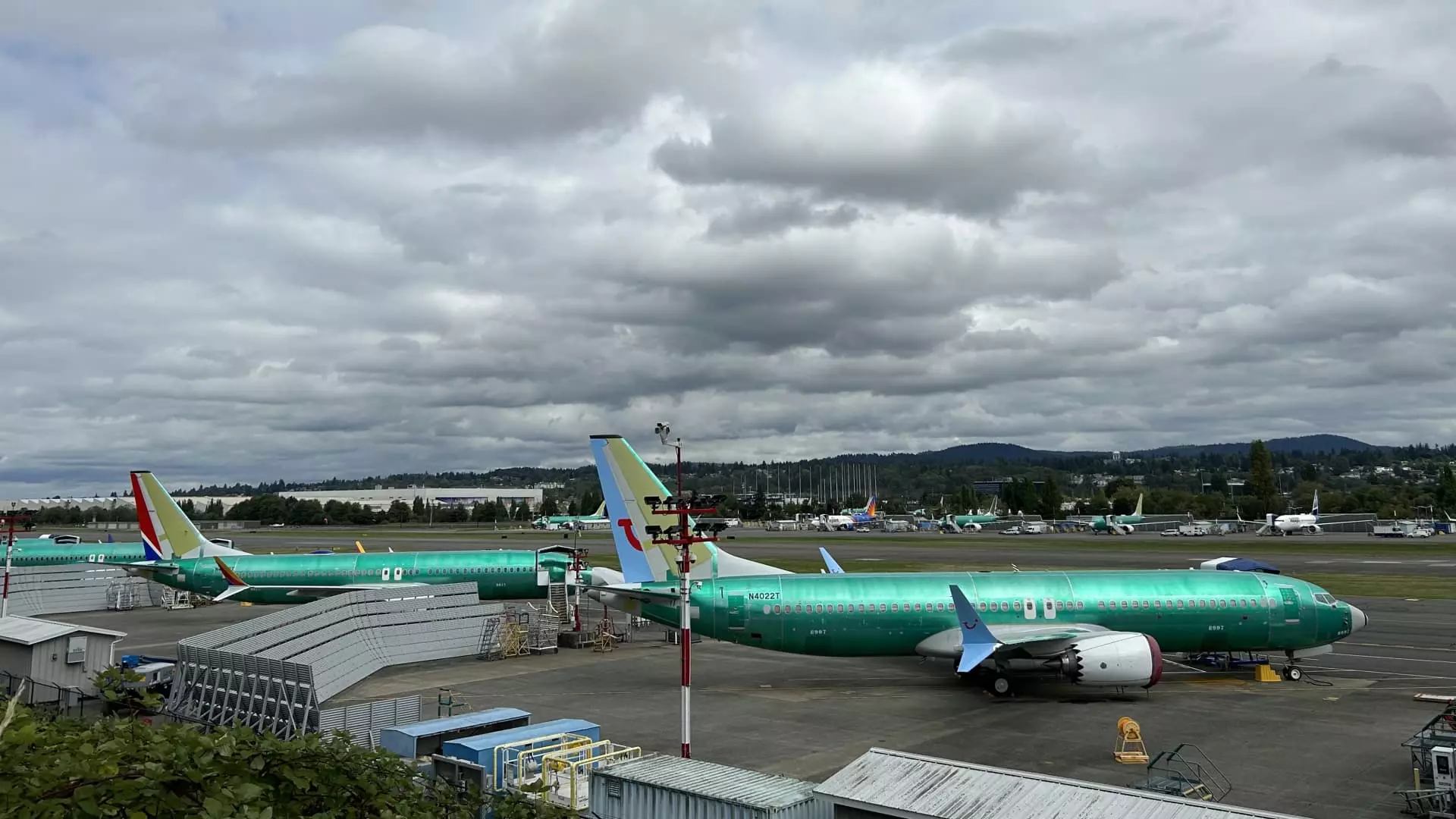In 2024, Boeing faced significant hurdles that resulted in the delivery of only 348 aircraft—marking a staggering one-third drop compared to the previous year. This decline can be attributed primarily to two critical issues: a midair door panel blowout incident that rocked public confidence and a machinist strike that considerably hampered production capabilities. As a result, Boeing’s ability to deliver on its robust backlog of orders was severely limited, exacerbating an already challenging situation within the company.
The repercussions of Boeing’s troubles extend beyond its own restructuring. Competitor Airbus showcased a contrasting performance by delivering 766 aircraft in 2024, the company’s highest annual total since 2019. This notable gap between the two aerospace giants highlights the mounting pressure on Boeing to not only recover its delivery numbers but also regain market share. While both manufacturers contend with supply chain interruptions, the scale and impact of Boeing’s setbacks seem particularly pronounced, making it difficult to forecast a quick recovery.
After suffering the machinist strike that lasted nearly eight weeks, Boeing managed to reignite its production line by December, delivering 30 airplanes as it revived operations for its popular 737 Max models. This restart was more than just a logistical necessity; it signaled an attempt to reassure investors and customers of Boeing’s commitment to turnaround amidst adversity. Deliveries are crucial as they often equate to immediate revenue, where customers fork over the bulk of an aircraft’s purchase price. Consequently, every delay not only stifles cash flow but also affects Boeing’s stakeholder confidence.
Boeing’s current challenges are compounded by an extraordinary rise in lease rates driven by aircraft shortages. Many airlines find themselves confronted with surging rental costs, which are projected to reach record-high levels this year, according to aviation analytics firm IBA. This situation creates a circular dilemma; as companies face higher operational costs due to leasing, airlines may reconsider new purchases from Boeing and Airbus, tightening the market further.
New Orders Versus Backlog Struggles
Despite the challenges, Boeing reported 142 gross orders in December alone, including substantial requests from Turkey’s Pegasus Airlines and flydubai. These bolstering orders might offer a glimmer of hope amid ongoing turbulence. However, the cancellation of over 130 orders from Jet Airways, a once-prominent Indian carrier, has only served to underline the volatility of this market. Boeing’s total for gross orders in 2024 stood at 569, whereas Airbus reported a significantly more substantial figure with 878 gross orders, showcasing the competitive sectors’ stark realities.
On January 28, Boeing executives, including CEO Kelly Ortberg, will be subjected to intense scrutiny from investors regarding strategic plans aimed at restoring profitability and ramping up production levels effectively. The road ahead will likely be paved with challenges, but stakeholders will be watching closely to assess how Boeing navigates these treacherous waters in the coming years. The emphasis will be on innovation, enhanced operational efficiencies, and perhaps, a more resilient supply chain to safeguard future deliveries against unexpected disruptions.

